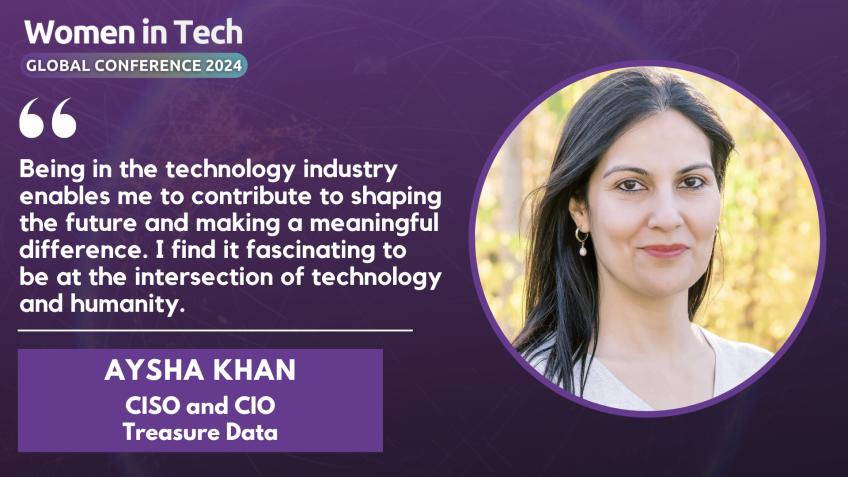Servant Leadership - Become a better leader by putting others first
Anna Sroka
IT Service ManagerUnderstanding Servant Leadership: A Journey towards becoming a Better Leader
Hi, I am Anna Rocca, currently based in Krakow. Today, we'll be discussing an impactful leadership style - Servant Leadership. The aim is to enhance your leadership skills even further. However, before we commence, let's see where everybody is joining us from today. Please feel free to drop your location in the comments section.
Understanding the Concept
In this discussion, we're dissecting Servant Leadership, one of the foremost leadership themes. This leadership style is about listening to, understanding, and empathizing with team members to improve productivity and overall efficiency. Setting the stage for growth requires a high level of self-awareness, and sometimes, achieving this mindset can seem daunting, but it's certainly achievable and rewarding.
The Crucial Aspect: Self-awareness
At its essence, Servant Leadership is about guaranteeing that the entire team's needs are met while still leading from the front. However, for this to be effective, you as the leader have to fully engage in proactive, secondary thinking to prioritise your team. The starting point is achieving self-awareness, which will be instrumental in your journey as a leader who genuinely serves.
Addressing the Needs of People: A Case Study
We encountered a challenging situation during the digital transformation of our company. With a team comprising both veterans of 15-25 years and newcomers, it was imperative to address their distinct fears, expectations, and aspirations. The senior employees were concerned about being indispensable, while the newer members were apprehensive about integrating effectively. Aligning these perspectives required empathetic listening and reassurance. Every member was made to feel valued, supported, and irreplaceable. A sense of trust was fostered within the team, eventually leading to their willingness to collaborate.
Propagating Empathy
The ability to listen empathetically is key in a Servant Leadership role. Understanding each team members' struggles and ensuring a supportive environment will help harness their energy and expertise to guarantee success. Your individuals are essentially your most valuable assets, and a Servant Leadership style can help capitalise on this.
Q&A With Anna
During an engaging Q&A session, I was able to answer some fascinating questions about Servant Leadership. One question, in particular, revolved around executing Servant Leadership as an individual contributor within a team. Here's a sneak peak:
- Rachel from USA: In Servant Leadership as a non-manager, how do you lead up with your leadership?
Even as an individual contributor, you can always embody the role of a leader by leading by example. This approach is particularly effective and recommended in software development teams, where developers can prove to be individual leaders in their respective domains.
Concluding Thoughts and Action Points
To imbibe the teachings shared here, here are some exercises you can try. First, endeavour to pen down what kind of leader you aspire to be. Then, compare this with a list of your strengths and areas for improvement. The next step is to improve on empathetic listening. Try asking your team members open-ended questions that stimulate in-depth conversation, helping you better understand their needs.
Thank you for attending this session and spending time with me. Remember, to grow and succeed as a leader, work on your self-awareness, empathize and listen to your team's needs, and be their biggest support. Let's stay in touch, learn, and grow together.
Video Transcription
My name is Anna Rocca and I welcome you in the session about the servant leadership. I'm here uh located in Krakow poet, so Central Europe. And I'm really interested to know when from, are you joining me in this session?So if you could please write down in the chat, your location, I would be glad to, to know it. Uh Today in the session, we are going to focus on the mm leadership topic exactly on a servant leadership. And our aim is to uh became a better leaders. So whenever you have joined the session, I do believe that uh you are a leader already and you would like to uh uh still improve. All right. Uh Hello Rachel from USA. Thank you so much for joining. Hope you will enjoy the ses the session. The session will be uh mm of Brazil. So we are really international and worldwide. Great. Uh mm I really encourage you to ask the questions. Uh uh Please put them on the chat. Uh There will be A Q and A by uh by the end of the session. Uh So we will have the dedicated time slot but uh just not to forget the questions, please. Uh mm please uh please put them or chat or, or raise your hand whenever you would like to um uh to somehow inter interact with us. So Ireland, great Brazil USA. Perfect. We have uh do we have anyone from Asia? And then we will have the represents uh from all over the world? All right. So let's jump to the main topic. Um Let me tell you what are you going to learn today?
We will discuss uh the um servant leadership uh uh style, but it will be from the experience, it will uh I will um provide you some insights from my experience, meaning how really um to um to use such type of the leadership. We will not um uh learn about the theory. Um The starting point about the servant leadership is uh self-awareness. This is quite um mm let's say this is a crucial thing and sometimes it's uh it's really difficult to start and uh really difficult to um to on a board that mindset of being a servant with the leadership um uh without uh having a really good self awareness and uh two other important aspects.
First of all, how hearing of the needs of the people with whom you work and how the empathy affects you as a leader and affect your leadership. So uh let me tell you a story. Usually whenever you became a leader, you are somehow on the front Yeah, you know, you are the face of the team in the demeaning that first there is a leader and behind there is a team. But with a servant leadership, we need to slightly adjust that model. So you are some kind of support person for your team and um only with uh mm thinking about uh yourself in the second uh like second thought, not the first one. Will you make you able to um be, be behave really a self leadership? So what is about the self-awareness? Yeah. So if you would think that uh it's me, who is the person who is in the charge, it's me who have to decide. It's me uh who know the best, then you uh put yourself first and uh um changing the um optics from your team. So um how it works and uh how I do try and uh quite often succe succeed with my team and the setup. So I do believe that the most uh and the um all the resources which I have are my people and they are the best experts in their area. And I'm allowing them to decide on your, on their fields.
If they might get the decision or uh their duties, it's the best decision because they are experts there. And I'm even, I'm their leader, I'm their supporter. So I need to make the environment supporting, supportive for them. So let's um jump to the exact uh exact situation um we've been doing a transformation, digital, the digital transformation of our it um uh it part of the company. And uh we had the situation that uh we had a lot of employees who've been a really long with the company. Those were the people who are like uh 1520 25 years. So people who really well known what's going on in the company, it was not their first uh transformation and uh they were already experts. But on the other hand, we had uh new joiners. So my people who've been uh just joining the company a few months ago, 12 or three years and even those three years comparing to 15 or 20 it was almost nothing. And as part of the uh digital transformation, there was uh organizational adjustment in the meaning that we get new structure. And uh uh the teams were combined with the people who were really long with the company and those who were new joiners and guess what happened?
It was not the easiest transformation I have done. It was really bumpy road. So uh colleagues who were long in the company, they were really afraid if they will be still needed. They were afraid about a new style uh of working about a new uh hm knowledge and about sometimes even certification of the colleagues who were joining the the company. And uh and we've been struggling. So there was huge, huge resistance. And now why am I telling you the story. So let's jump to the next slide. What I've done, I started to hearing the needs. Uh whenever you could have best experts, you had the greatest team. But if you not focus about the needs, what they have, uh then the delivery of the team will be always affected. What do I mean here they need uh th this colleague who was 20 years in the company, uh he or she was in a different need or personal need than the person who are new joiner, the person who was 20 years was afraid. Uh All right, maybe those who just freshly came to the company has better ideas. They had their new certification, they had uh let's say um uh strange do job title. I do not understand that and I'm just here.
So from ages and maybe they would think uh that I'm useless. Yeah. So they were um they were afraid that what they've been doing and what they know it will be not so required in the component. So um until you do not know what they are afraid of and you do not understand the needs, you are not able to create the environment and support the team in that way that will allow them to grow. So whenever you see that someone is struggling that way, you need to adjust your leadership style to that way uh that it's supportive to that person. Yeah. So uh in this exact case what I've done, I was sitting it and with each and every person individually and explaining how we appreciate the, their experience and their knowledge with the from of the company. And that without them, we are not able to perform this transition and transformation. So we trust that uh with their knowledge, which we really believe and hope they are going to share with new joiners, we will be able to succeed and they do understood that they understood that.
Um All right. So we have really something in our hands. We know the organization, we know how it works. We know what are the needs of our customers and this is something unique. And when they understood it, they became open and willing to discuss and um mm and talk to their colleagues. And now before I will jump to the new joiners, I would like to tell you a bit about empathy. So you will not be able to hear the needs until you will listen with the empathy. So you need to really want to understand the other person. And uh sometimes we could think that the person is uh not polite but not uh not, not smiling or not so, you know, energetic. But do you know what's behind that person? Do you know what she or he is struggling with the personal life with what kind of things already? They struggle that day. Just imagine the mother, she was not sleeping, the whole night. She has uh uh she is tired, she doesn't know what's happening to their child. There is a transformation ongoing in the company and she's not knowing what to expect. Will she be fired? What does it mean? Is the transformation? Meaning that I'm going to not be needed anymore. What to do? Yeah.
So hear the needs but hear it with the empathy and then support uh to allow them to utilize their energy, their expertise to allow you to succeed. Because as I said, uh your people are your uh biggest value and if you will have a buy in from them and if you will have the will of collaboration that you will do everything doesn't matter what kind of circumstances that will be around you, but you need to find a way how to do it.
And being a supporter, being a servant leader could be the solution for you. And now uh I would like to ask you for your questions or your comments. Maybe there was something uh which uh which required some kind of um mm uh more information, Rachel. Thank you so much for your question. Uh And the question is in servant leadership as a non manager, how do you lead up with your leadership? Perfect question. As an individual contributor. Uh You can always handle the role of uh being a leader in that meaning that um you um somehow lead others with your example in exactly in it uh It's, it's uh such approach. It's quite often used for the software development teams in the meaning that you can be um a developer, but then you could still be an individual contributor. You are a leader for others. So you show them by example. Um mm H how to behave and what to do, how to write the code, what to do with the code, how to develop yourself to be a better developer. So yes. Um uh y yes, uh Rachel, is it uh I uh is it uh somehow um which will help you such, such, such, such the answer? Perfect. Thank you so much. Great, great, great. All right. Do you have any other questions and others? On the beginning?
By the way, on the beginning of the session, I asked about the location we had us, we have Bra Brazil, Ireland, I'm from Poland and so Europe uh and other locations. It's, it's great to have uh it. Uh Porto Great. I'm going 1st 1st time in my life to, to Porto this year. So Alexandra, thank you so much for, for, for joining Canada Quebec. Great. Um So um this is uh this is somehow uh when I observe uh hm when I observe my colleagues who do, who do are involved uh in uh in, in big projects or sometimes they are architects or some kind of um individual leaders, those developers, it's uh it's not easy to build up the self-awareness and, uh, maybe we can, uh, before the end of the session a bit more elaborate about the ex, um, exercises how to make, uh, uh, our self-awareness.
So, uh, it would be great if you could do an exercise on your own. Um, to list what, what kind of leader I would like to be what I would like to achieve as a leader. And please write it down, not just only think, write it down and read it and then you will see if uh it match with your imagination of the leader when you will have it. Uh Then the second point will be what I'm good with and what I should still improve. And then when you will have those two lists, please um compare it with your vision like what kind of leader you would like to be and then you will have some kind of answer where you need uh still um to on what you need to work on or what kind of competences you need to um utilize a bit more.
Yeah. So this will um mm this will uh help you with, with self-awareness. Then let's think about the uh hearing and the empathy. So please ask to your colleagues or to your team members, open questions. So the questions where the answer will not be yes or no, but the person would need to um talk, be talkative because only in that case, you will be able to uh learn from the person more. All right. Now we have the last chance uh to ask the questions or give other any feedback. Um I will put a here uh here slide about me. Uh If there will be anything will come to your mind, uh We just would w would like you haven't the chance to ask it here. You can always contact me via linkedin. I will be uh more than happy to, to, to provide you um I insights or the update. And uh mm And yeah, so just let me check if we will have anything else here. Uh Anything else, if not, then I think uh we can sum up. So uh please work out your uh idea what kind of leader you would like to be. Please uh build up your self-awareness and whenever you will um mm you will build up the team. Please try to listen their needs and discuss with them with the empathy.
I am sure that you will succeed um mm with your leadership and then you will grow. Thank you so much for spending the time with me and attending the session. Hope to meet you once again in person. Thank you so much, Alexandra. Maybe one day we will meet in uh uh in Portugal. Enjoy the day. Let's be in touch. Thank you.






